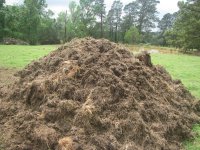I'm fairly new to gardening and still at the stage of "stick it in the ground, water it and be totally gobsmacked when it works!". Equally, when it doesn't work I get extremely disheartened.
Yesterday I harvested second earlies - Kestral I think and I was over the moon. They were huge and plenty of them. However, today I was checking through them and there's a lot of scab on them. Not on all of them, but I'd say half.
I did some google research and discover it's a bacterial disease in the soil and you can't get rid of it.
Some sources suggest a scab resistant type of potato, others lowering the ph to make the soil more acidic, and some suggest that the problem might not recur if watering is consistent. We did have a very dry spell just as I was down with COVID, so it could have dried out a bit at the wrong time.
I grow my potatoes in a combination of raised beds, and also in large tubs with the bottoms cut out and placed on soil. So a combination between growing in containers with the benefit of the roots being able to go deep into the soil.
Any advice, tips or consolation welcome!!!
Yesterday I harvested second earlies - Kestral I think and I was over the moon. They were huge and plenty of them. However, today I was checking through them and there's a lot of scab on them. Not on all of them, but I'd say half.
I did some google research and discover it's a bacterial disease in the soil and you can't get rid of it.
Some sources suggest a scab resistant type of potato, others lowering the ph to make the soil more acidic, and some suggest that the problem might not recur if watering is consistent. We did have a very dry spell just as I was down with COVID, so it could have dried out a bit at the wrong time.
I grow my potatoes in a combination of raised beds, and also in large tubs with the bottoms cut out and placed on soil. So a combination between growing in containers with the benefit of the roots being able to go deep into the soil.
Any advice, tips or consolation welcome!!!




